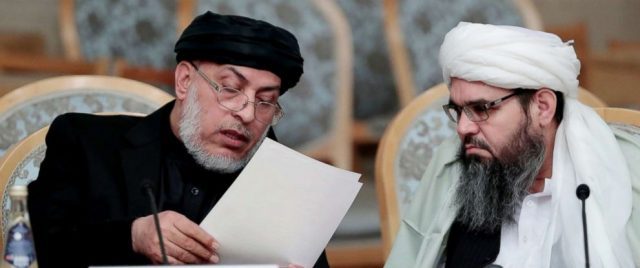News Analysis |
The confirmation came from the Russian foreign minister Sergey Lavrov who also expressed high hopes from the summit which will be commenced in September. Taliban is officially a banned terrorist outfit since 2007 as per the Russian government’s on a paper stand, but Russia has actively kept the back channels of contact open with a certain faction of Afghan Taliban. While behind the scene dialogue are no exception for the United States of America itself, but it has continuously been critical to the Russian approach toward the Afghan region.
Russian policy has been steadily gaining momentum which could be seen with an extensive 11-state conference on Afghan issue. The United States has been continuously losing the leverage on a global scale and the recent row with the NATO states have left the alliance unintelligible than before.
Russia is gradually integrating the support around its own mode of Afghan solution which has extended from a tri-patriate, China, Pakistan, and Russia, to a broad 11 countries summit this year. The key inclusion in India in the process along with the central Asian states. It is significant to mention here that India is the new frontline ally of the United States as per Donald Trump’s South Asia policy. The USA has snubbed the Russian effort and the Afghan government has consequently declined the offer to attend the summit.
Read more: Is Russia supplying weapons to Afghan Taliban?
It is going to be the first time ever that Taliban will be sharing the conference table officially with the representatives of various states after being ousted from power in 2002. It is quite contrary to the western established and accepted rules of engagement with the group that they should be forced to come to terms with the Afghan government. The acceptance at such a high level has strengthened the claim of the group that they are the legitimate stakeholder in the Afghan turmoil, an issue which has become a black hole for the global security spectrum after ISIS has managed to dig its feet deeper in Afghanistan.
The Russian discourse has been very methodical throughout where they have sidelined themselves with the hardcore fighter section of the Taliban which does not believe in negotiations. The channels were kept open with the moderate, forward-leaning commanders who believe in a way out other than fighting and it has ultimately proved to be fruitful as Russia, not the USA, is apparently pushing toward a peaceful solution of the Afghan civil war.
The most interesting addition to the Russian mediation efforts in India, which is trying to bridge the gap between Russian and U.S aspirations vis-à-vis Afghanistan. Over the years, India has developed its own strategic interests in Afghanistan which revolve around its arch-rival Pakistan.
There are three objectives which have driven Russia’s Afghan strategy over the course of years.
- First is the security perspective which has emerged after the launching of ISIS in Afghanistan. Since the group shares ideological differences with the Taliban, Russia has been able to utilize the latter as their militia to achieve their goal of eliminating ISIS from the region. Some reports even suggest the active intel-sharing and providing the group with ammunition and arms.
- The second objective is to stop the influx of drugs via central Asia into the Russian mainland. In 2000, Russia endorsed the efforts of Mullah Omar, the former chief/ameer of Taliban, in his crackdown against the Opium production. The arrival of western forces has done little to nothing in curbing the menace which has made Afghanistan still one of the biggest suppliers of drugs in the world.
- Third and last ambition on part of Russia is to bring the Afghan problem to an end on its own terms, rather what suits its arch-rival USA. Russian policy has been steadily gaining momentum which could be seen with an extensive 11-state conference on Afghan issue. The United States has been continuously losing the leverage on a global scale and the recent row with the NATO states have left the alliance unintelligible than before. The budget for Afghan Security forces is a considerable dent on the economies on key NATO countries, though most of it being paid by the United States itself. An agreeable solution will be widely hailed no matter who brings it to the table, especially in the current scenario where the United States is not enjoying the support even from traditional allies.
Read more: What does Russia now want in Afghanistan? Peace or further discord
The most interesting addition to the Russian mediation efforts in India, which is trying to bridge the gap between Russian and U.S aspirations vis-à-vis Afghanistan. Over the years, India has developed its own strategic interests in Afghanistan which revolve around its arch-rival Pakistan. For the long-term sustainable peace in the region, India will need to somewhat compromise its own strategic objectives.














